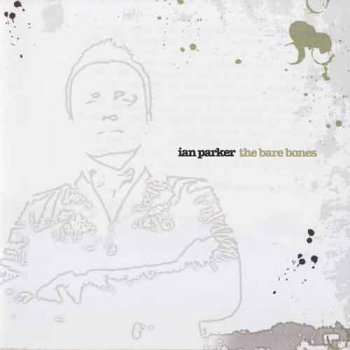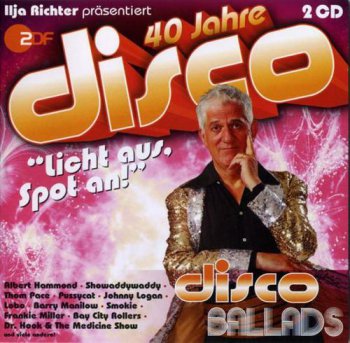MAGNUM «Discography» (24 × CD · Japan 1St Press · 1978-2024)
Performer: MAGNUM / ディスコグラフィー Album / collection: «Discography / ディスコグラフィー» Label: (c)(p) 1978-2024 Jet / Polydor / SPV Source: Rip by KoGGaN™ scans by inet… Official DR value: •13•11•12•12•11•13•14• •12•11•12•11•11•9•11•6/8•6•6•6•5/5•5•5•6• Catalog (Barcode): much… Genre / Style: Rock, Melodic Rock, AOR, Pomp Rock Year (info): 1978-2024 (24 × First Press CD, Collection—) Format: WV (image + .cue) Bitrate: lossless Covers: in archive Amount of tracks: 256 Total time: 20:46:11 Size RAR: ~ 11,51

MAGNUM «Discography» (24 × CD · Japan 1St Press · 1978-2024)
Performer: MAGNUM / ディスコグラフィー Album / collection: «Discography / ディスコグラフィー» Label: (c)(p) 1978-2024 Jet / Polydor / SPV Source: Rip by KoGGaN™ scans by inet… Official DR value: •13•11•12•12•11•13•14• •12•11•12•11•11•9•11•6/8•6•6•6•5/5•5•5•6• Catalog (Barcode): much… Genre / Style: Rock, Melodic Rock, AOR, Pomp Rock Year (info): 1978-2024 (24 × First Press CD, Collection—) Format: WV (image + .cue) Bitrate: lossless Covers: in archive Amount of tracks: 256 Total time: 20:46:11 Size RAR: ~ 11,51
17 10, 2025
Battle Beast - Steelbound 2025
Исполнитель: Battle Beast Альбом: Steelbound Жанр: Heavy Metal, Power Metal Год: 2025 Страна: Finland (Helsinki, Uusimaa) Лейбл: Nuclear Blast Формат: FLAC (tracks) Official DR value: DR6 Разрядность: 24bit / 44.1kHz Stereo Размер: 466 MB Инфо: bandcamp Залито на: XFile (3% восстановление) «Exclusive for Lossless-Galaxy»

Battle Beast - Steelbound 2025
Исполнитель: Battle Beast Альбом: Steelbound Жанр: Heavy Metal, Power Metal Год: 2025 Страна: Finland (Helsinki, Uusimaa) Лейбл: Nuclear Blast Формат: FLAC (tracks) Official DR value: DR6 Разрядность: 24bit / 44.1kHz Stereo Размер: 466 MB Инфо: bandcamp Залито на: XFile (3% восстановление) «Exclusive for Lossless-Galaxy»
17 10, 2025
Sabaton - Legends 2025
Исполнитель: Sabaton Альбом: Legends Жанр: Power Metal Год: 2025 Страна: Sweden (Falun, Dalarna) Лейбл: Better Noise Music Формат: FLAC (tracks) Official DR value: DR6 Разрядность: 16bit / 44.1kHz Stereo Размер: 335 MB Инфо: bandcamp Залито на: XFile (3% восстановление) «Exclusive for Lossless-Galaxy»

Sabaton - Legends 2025
Исполнитель: Sabaton Альбом: Legends Жанр: Power Metal Год: 2025 Страна: Sweden (Falun, Dalarna) Лейбл: Better Noise Music Формат: FLAC (tracks) Official DR value: DR6 Разрядность: 16bit / 44.1kHz Stereo Размер: 335 MB Инфо: bandcamp Залито на: XFile (3% восстановление) «Exclusive for Lossless-Galaxy»
17 10, 2025
Жанры
Lossless Galaxy Release
Русская музыка
--Поп
--Рок
--Панк
--Альтернатива
--Металл
--Рэп, Хип-Хоп, R'n'B
--Джаз и Блюз
--Фолк
--Шансон, Авторская песня
--СССР
Зарубежная музыка
--Pop
--Rock
--Hard Rock
--Progressive & Art-Rock
--Pop-Rock & Soft Rock
--Instrumental Rock
--Heavy, Traditional, Industrial Metal
--Power, Gothic, Sympho Metal
--Thrash, Speed, Groove, Modern Metal
--Death, Melodic Death, Doom, Dark Metal
--Black, Pagan, Folk, Viking Metal
--Alternative
--Punk
--Disco, Eurodance
--Rap, Hip Hop, R'n'B
--Reggae, Ska, Dub
--Jazz, Blues, Soul
--Folk, Country, Ethnic
--Electronic, Ambient, New Wave
--House, Techno, Trance
Другие жанры
--New Age, Relax, Meditative & Flamenco
--Chillout, Lounge, Downtempo, Trip-Hop
--Drum & Bass, Jungle, Breakbeat, IDM
--Classical / Классическая музыка
--Soundtrack
--Музыкальные сказки
Vinyl Rip
HI-Res / DVD-Audio / DTS
--SACD
--DSD
--DVD-Audio
Сборники Lossless-Galaxy
Альбомы 2022
Альбомы 2023
Альбомы 2024
Теги
1st Press 2022 2023 2024 2025 70... AOR Black Metal Blues Blues Rock Bootleg Series Classic Rock Death Metal Discography Exclusive for Lossless-Galaxy Folk Rock Fusion Hard Rock Heavy Metal Hi-Res Japanese Edition Jazz Jazz Rock lossless Melodic Death Metal Melodic Rock Modern Electric Blues Pop Pop Rock Power Metal Prog Rock Progressive Metal Progressive Rock Psych Rock Psychedelic Rock Rock SACD Symphonic Metal Thrash Metal Дискографии от KoGGaN
Архивы
Опрос
В каком формате хотели бы видеть релизы на сайте ?
 Автор: papulya, 31 марта 2012, Комментариев: 0, Просмотров: 1 313
Автор: papulya, 31 марта 2012, Комментариев: 0, Просмотров: 1 313Eddy Grant - Greatest Hits Collection (2cd) (1999)
 Автор: VP_1974, 31 марта 2012, Комментариев: 0, Просмотров: 1 259
Автор: VP_1974, 31 марта 2012, Комментариев: 0, Просмотров: 1 259Victory Of The Better Man - L'Utopiste (1991)

Исполнитель: Victory Of The Better Man
Альбом: L'Utopiste
Год выхода: 1991
Страна: Germany
Колличество дорожек: 11
Общее время звучания: 54:53 min
Жанр: RIO / Avant-Prog / Post-Rock
Формат: Lossless / FLAC (log + cue + scans)
Размер файла: 300 mb
Залит на: Narod.ru
 Автор: marks, 31 марта 2012, Комментариев: 0, Просмотров: 1 240
Автор: marks, 31 марта 2012, Комментариев: 0, Просмотров: 1 240Russ Pay – Double O Heaven Greatest Bond Themes
Russ Pay
Double O Heaven
The Greatest Bond Themes Soundtrack
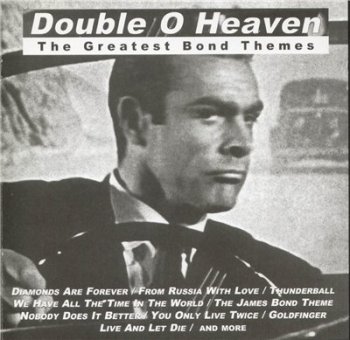
Страна: UK
Style: Soundtrack
Год выпуска: 1998
[Производитель: Doppelganger
Аудио кодек: flac
Тип рипа: tracks
Продолжительность: 31:07
Double O Heaven
The Greatest Bond Themes Soundtrack

Страна: UK
Style: Soundtrack
Год выпуска: 1998
[Производитель: Doppelganger
Аудио кодек: flac
Тип рипа: tracks
Продолжительность: 31:07
 Автор: VP_1974, 31 марта 2012, Комментариев: 0, Просмотров: 1 183
Автор: VP_1974, 31 марта 2012, Комментариев: 0, Просмотров: 1 183Happy Apple - Youth Oriented (2003)
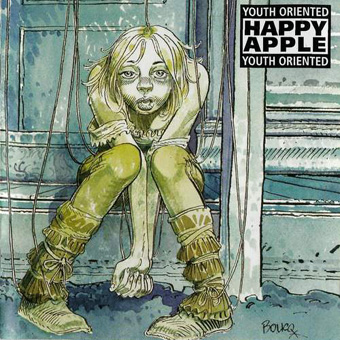
Исполнитель: Happy Apple
Альбом: Youth Oriented
Год выхода: 2003
Страна: USA
Колличество дорожек: 9
Общее время звучания: 61:36 min
Жанр: Jazz Contemporary / Free Jazz
Формат: Lossless / FLAC (log + cue)
Размер файла: 392 mb
Источник: veushka
Залит на: Narod.ru
Это модерн-джазовое трио было образовано в Миннеаполисе, Миннесота, в 1996 году. Практически все композиции музыканты сочиняют вместе. Творчество команды выделяется образом джаза, интегрированного в другие стили музыки. Пьесы построены на сочетании таких жанров как альтернативный и инди-рок, контемпорари и фри джаз, хэви-метал и электроника. Они так исполняют джаз, будто для них не имеет совершенно никакого значения как эту музыку будут потом называть и классифицировать. Основная фишка коллектива - в электрическом бас-гитаристе, который слегка под влиянием Жако Пасториуса, однако много больше под впечатлением от американских инди-рокеров. Музыка группы - современный джаз-рок с характерным привкусом альт-рока и отсылками ко многим легендарным штатовским рок-командам и не только. В роковых моментах мне, например, услышались Weather Report и Sonic Youth, отвязные фри-джазовые саксовые соло явственно напоминают Джона Колтрейна и Орнетта Коулмана, а низкотональная басовая гимнастика уже отсылает к тому же Жако Пасториусу. Несмотря на это, группа обладает своим ярко выраженным лицом и, более того, уже имеет массу подражателей в джаз-роковых кругах. Однако широкой музыкальной общественности трио известно во многом благодаря барабанщику Дэвиду Кингу, который также является постоянным участником более известного проекта - The Bad Plus. Название Happy Apple происходит от игрушки 70-х годов fisher-price. Это маленькая звенящая коробочка, которую Дэвид использует на концертах в качестве перкуссии.
 Автор: sevasval, 31 марта 2012, Комментариев: 0, Просмотров: 1 296
Автор: sevasval, 31 марта 2012, Комментариев: 0, Просмотров: 1 296Johnny Shines - Too Wet To Plow 1975 (Tomato 2004)

Исполнитель: Johnny Shines
Альбом: Too Wet To Plow
Жанр: Blues/Slide Guitar/Acoustic
Год выхода: 1975/2004
Формат: APE (image+.cue, scans)
Качество: Lossless
Источник (релизер): Darkman/barin99
Размер: 287 Mb
Залито на: unibytes.com/gigabase.com/share4web.com/turbobit.com
 Автор: VP_1974, 31 марта 2012, Комментариев: 0, Просмотров: 1 134
Автор: VP_1974, 31 марта 2012, Комментариев: 0, Просмотров: 1 134Happy Apple - Please Refrain From Fronting (2001)

Исполнитель: Happy Apple
Альбом: Please Refrain From Fronting
Год выхода: 2001
Страна: USA
Колличество дорожек: 11
Общее время звучания: 67:55 min
Жанр: Jazz Contemporary / Free Jazz
Формат: Lossless / FLAC (log + cue)
Размер файла: 393 mb
Источник: veushka
Залит на: Narod.ru
Это модерн-джазовое трио было образовано в Миннеаполисе, Миннесота, в 1996 году. Практически все композиции музыканты сочиняют вместе. Творчество команды выделяется образом джаза, интегрированного в другие стили музыки. Пьесы построены на сочетании таких жанров как альтернативный и инди-рок, контемпорари и фри джаз, хэви-метал и электроника. Они так исполняют джаз, будто для них не имеет совершенно никакого значения как эту музыку будут потом называть и классифицировать. Основная фишка коллектива - в электрическом бас-гитаристе, который слегка под влиянием Жако Пасториуса, однако много больше под впечатлением от американских инди-рокеров. Музыка группы - современный джаз-рок с характерным привкусом альт-рока и отсылками ко многим легендарным штатовским рок-командам и не только. В роковых моментах мне, например, услышались Weather Report и Sonic Youth, отвязные фри-джазовые саксовые соло явственно напоминают Джона Колтрейна и Орнетта Коулмана, а низкотональная басовая гимнастика уже отсылает к тому же Жако Пасториусу. Несмотря на это, группа обладает своим ярко выраженным лицом и, более того, уже имеет массу подражателей в джаз-роковых кругах. Однако широкой музыкальной общественности трио известно во многом благодаря барабанщику Дэвиду Кингу, который также является постоянным участником более известного проекта - The Bad Plus. Название Happy Apple происходит от игрушки 70-х годов fisher-price. Это маленькая звенящая коробочка, которую Дэвид использует на концертах в качестве перкуссии.
 Автор: marks, 31 марта 2012, Комментариев: 1, Просмотров: 1 299
Автор: marks, 31 марта 2012, Комментариев: 1, Просмотров: 1 299Nirvana - From The Muddy Banks Of The Wishkah
Nirvana
From The Muddy Banks Of The Wishkah
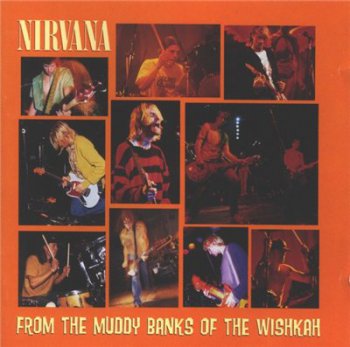
Страна: USA
Style: Grunge, Rock
Год выпуска: 1996
Страна производитель: USA
Производитель: DGCD
Аудио кодек: flac
Тип рипа: tracks
Продолжительность: 53:55
первый пресс - на пятаке: DGD-25105 F3 1A 05 (IFPI 1423)
From The Muddy Banks Of The Wishkah

Страна: USA
Style: Grunge, Rock
Год выпуска: 1996
Страна производитель: USA
Производитель: DGCD
Аудио кодек: flac
Тип рипа: tracks
Продолжительность: 53:55
первый пресс - на пятаке: DGD-25105 F3 1A 05 (IFPI 1423)
 Автор: zealot, 31 марта 2012, Комментариев: 0, Просмотров: 1 398
Автор: zealot, 31 марта 2012, Комментариев: 0, Просмотров: 1 398Зарубежная музыка / Pop / Rock / Pop-Rock & Soft Rock / Disco, Eurodance / Rap, Hip Hop, R'n'B / Jazz Blues Soul
VA - Disco Ballads - 40 Jahre Disco - Ilja Richter Prasentiert (2011)
 Автор: zealot, 31 марта 2012, Комментариев: 0, Просмотров: 1 185
Автор: zealot, 31 марта 2012, Комментариев: 0, Просмотров: 1 185Orchestra Russ - Music Of The Russian Circus (1996)
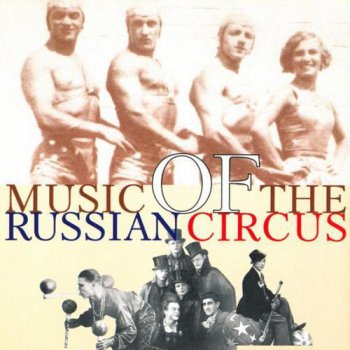
Artist: Orchestra Russ
Album: Music Of The Russian Circus
Year: 1996
Genre: Instrumental, Jazz, Big Band
Length: 43:41
Quality: Lossless
Format: Flac (image+.cue)
Size: 386,43 Mb

